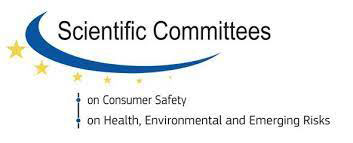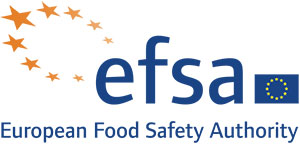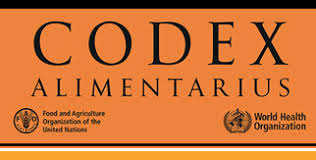Prevent
Our right to live in healthier environments
For 30 years now, EFA has advocated for positive change for our community. Effective prevention is a crucial element in reducing the risk of becoming a patient and to alleviate the impact of allergies and airway diseases. EFA strives for the right to live in a healthier environment that does not compromise quality of life for the allergy, asthma and chronic obstructive pulmonary disease community. This mission, held since 1991 was strengthened through our actions in 2021 and will continue to be felt well into the future.
Call for better Air Quality outdoors

2021 was a milestone year for air quality policy and prevention of air pollution in Europe.
At global level, we applauded the most awaited WHO update of the Ambient Air Quality Guidelines (AAQG), which EFA was officially invited to revise with our allergy and respiratory patient perspective. The new AAQG set more ambitious levels for a majority of the air pollutant measures and prioritised the effects of pollen as a future area of research in the field of air pollution, an EFA long-lasting call that WHO included in the update. The new WHO AAQGs are the most solid scientific recommendations in the world, and include EFA’s central reference to continue requesting stricter pollutant levels in national and EU laws.
In parallel, EFA contributed to the revision of the EU Ambient Air Quality Directives (AAQD) conveying in official consultations and workshops the need for an air quality framework, stricter pollutant levels and more accessible and clear public information addressing vulnerable groups such as patients. Meanwhile, we worked closely with members of the European Parliament (MEPs) to add our perspective to the European Parliament report on the implementation of the EU AAQD. As a result, we were glad to see the EP urging for regulatory action on indoor air quality, and using strong language calling for better access to air quality information, including targeted at vulnerable groups.

[EFA Policy Advisor Panagiotis Chaslaridis gives his intervention at the Zero Pollution Stakeholders Platform launch]
EFA was selected to join the high-level Zero Pollution Stakeholder Platform, an expert group led jointly by the European Commission and the Committee of Regions to support the implementation of the zero pollution targets and the EU Green Deal ambition. As the only organisation representing patients in the platform, EFA will engage with decision-makers and stakeholders to communicate the vulnerable people perspective on air pollution.

At an air quality enforcement level, EFA Panagiotis Chaslaridis participated in the WHO Europe project “Sharing Key Air Pollution and Health Information in Europe” (SKAPHIE) to examine, together with national authorities, researchers and other stakeholders, the effectiveness of individual citizen’s interventions to self-protect from air pollution.
Insisting to improve Air Quality indoors

With EFA’s efforts, indoor air quality (IAQ) is now in the spotlight. Drawing from a long advocacy tradition, we continued pushing for an integrative EU approach on air quality, which, together with the outdoor air quality efforts, would eventually result in a comprehensive framework strategy on air quality.
During 2021, EFA was thrilled to see IAQ considerations featuring as flagship priorities in high-level documents. One example has been the EU Zero Pollution Action Plan, a key initiative from the EU Green Deal, which includes a commitment for action to prevent indoor pollution by bridging the existing policy gaps.
A key opportunity to position IAQ in policy debates has been the revision of the Energy Performance of Buildings Directive (EPBD). Participating in the official consultations and stakeholder workshops, EFA highlighted the value of health-relevant renovations and access to information on indoor pollutants. Meanwhile, as observers to the civil society Right-to-Energy Coalition, EFA keeps a close eye on the developments in the energy sector affecting access to healthy indoor environments.
Finally, EFA is part of a consortium selected to implement a new EU-Funded project called SynAir-G (Disrupting Noxious Synergies of Indoor Air Pollutants and their Impact in Childhood Health and Wellbeing, using Advanced Intelligent Multisensing and Green Interventions). With a duration of four years, partners aim at developing solutions for IAQ monitoring and timely interventions for vulnerable populations (e.g. children with allergy and asthma).
Bringing health impacts to Climate Change adaptation and mitigation
In 2021 the European Commission adopted a new EU strategy on Adaption to Climate Change that launched the Climate and Health Observatory as a hub of scientific knowledge addressing climate change impacts on health and solutions to address them. EFA is pleased to see that the Observatory foresees mainly risk factors such as pollen, heatwaves and wildfires in their strategy. These are points EFA strived to convey during the 2020 consultations as fundamental for allergy, asthma and COPD patients. In 2021-2022 the Observatory will focus on heat stress, including its links with pollen and other aeroallergens. The end goal is to develop risk indicators, assessment tools and background knowledge that will help design policy solutions.
Moreover, during the United Nations Framework Convention on Climate Change (UNFCCC), EFA participated in the Global Conference on Health and Climate Change, which took place as part of the COP26 Health Programme. With the message ‘the climate crisis is a health crisis’, we called on governments, businesses, and institutions to adopt ambitious climate actions to protect health.
To mark World Meteorological Day in March 2021, EFA and the European Academy of Allergy and Clinical Immunology (EAACI) published a joint press release with a call to mitigate the health impacts of climate change by improving air quality, fostering health-promoting activities, enabling real-time monitoring of pollen and mould spore, and protecting biodiversity.
Tobacco and Smoking

EFA put substantial effort into advocating for a tobacco-free Europe throughout 2021, a preparatory year to the major developments that the ambitious Europe’s Beating Cancer Plan foresees for EU tobacco control policies in the coming years. EFA participated in shaping the plan through our participation in official stakeholder consultations with requests such as the need to revise the current Tobacco Products Directive to expand its scope to novel tobacco products; and to revive political commitment to smoke-free environments with new Council Recommendations. The plan’s implementation roadmap, presented in November, included a concrete timeline for both EFA requests.
Further, EFA was delighted to offer the patient’s perspective on the health risks of second-hand exposure to smoke in a webinar organised by the European Network for Smoking and Tobacco Prevention (ENSP), of which EFA are associate members.

EFA also welcomed the final opinion of the Scientific Committee on Health, Environmental and Emerging Risks (SCHEER) on electronic cigarettes, which increased the focus on the impact of e-cigarettes on lungs and acknowledged the evidence on the short-term impacts on lung health. EFA had highlighted both aspects in our 2020 response to the public consultation.
Throughout the year, EFA worked to ensure the proper implementation of the Framework Convention of Tobacco Control (FCTC) at the national level, including the expansion of 100% smoke-free environments. EFA approached this issue from a dual angle: the need to eliminate exposure to second-hand smoke via smoke-free environments; and to address the legislative gaps in the face of novel tobacco and related products.
We are looking forward to weaving the respiratory patient perspective into further exciting developments in tobacco regulation in 2022, especially after the 2021 European Commission discussion on the advertising of tobacco and related products; and smoke-free environments that shows a concerning lack of compliance.
Chemicals

In a year marked by the revision of the EU chemicals legislative framework and the launch of the Zero Pollution Action Plan, which envisages a toxic-free environment by 2050, EFA focused on calling for safer chemicals that would reduce risks to health.
EFA advocated for chemicals-free indoor environments in procedures such as the revisions of the directives on Ambient Air Quality and Energy Performance of Buildings. A key focal point of EFA was volatile organic compounds (VOCs), a pollutant associated with lung dysfunctions. Accordingly, we acknowledge the intention of the Commission to address VOCs under the revision of the Construction Products Regulation, with further developments which we will be monitoring in 2022.
EFA also participated in the process to establish the Health Emergency and Response Authority (HERA), the newly formed entity operated by DG SANTE that will anticipate potential health crises by accumulating intelligence and engage the necessary response capacities. In our contribution, EFA called for a focus on climate change-related challenges with a clear impact on health, such as air pollution, wildfires, heatwaves and floods; and also those related to chemical, biological, radiological and nuclear threats, which have an urgent, cross-border, multi-hazardous and health-damaging effect.

As Accredited Stakeholder Organisation to the European Chemicals Agency (ECHA), EFA has been monitoring the regulatory activities of the agency. A key highlight has been their study assessing the REACH restrictions between 2016-2020, which concludes that the health benefits per year significantly outweigh the costs.
Throughout the year, EFA continued to participate in two key EU Horizon 2020-funded projects studying the health effects of exposure to chemicals: the Human Biomonitoring for EU project (HBM4EU) where we are stakeholders and the Human Exposome Network (EHEN) as members of the Advisory Board.
Food Labelling

Food policy at European and global levels experienced major developments in 2021. EFA brought the food allergy patient and carer perspective to all forums, maintaining an open line with policymakers and further building our networks.
As the highly anticipated EU Farm-to-Fork Strategy left food allergen aspects largely unaddressed, EFA brought these concerns forward through dedicated meetings with key representatives from the European Commission and the European Parliament. We continued to advocate at the EU level for clear allergen information, including Precautionary Allergen Labelling (PAL).

As a Registered Stakeholder of the European Food Safety Authority (EFSA), in 2021 EFA participated in all stakeholder meetings and followed closely its work, including on the risks posed by novel foods. An important task of EFA is that EFSA includes allergen risk management in food safety. For this, we contributed to the EFSA Strategy 2027 draft consultation, calling for an agency that supports policy through a strengthened role in research and risk assessment, including allergen, favouring patient safety. We also showed interest to the EFSA calls for stakeholder engagement on innovative food, and on safety gaps in the circularity of food. EFA looks forward to reinforcing its engagement with the agency under the new EFSA mandate that aims for greater transparency and openness towards stakeholders.

As Observers to the WHO-FAO Codex Alimentarius Commission, we actively participated in the annual meetings of this key international entity, including in the meetings of its Committees on Food Labelling (CCFL) and Food Hygiene (CCFH). Our participation involved addressing two oral statements bringing the food allergy patient perspective, namely on the e-commerce of food and on the revision of the GSLPF.
In 2021 EFA responded to several official consultations of Codex, including and on the revision of the General Standard for the Labelling of Pre-packaged Foods (GSLPF); and on the draft Codex guidelines on the use of Precautionary Allergen Labelling. As a result of this work, we secured the patients voice in three new Codex working groups on allergen labelling, innovation in food labelling and e-commerce of food.
Still at the global level, EFA participated in the WHO Global Food Safety Strategy consultation, where we called for strengthened food safety controls and urged for caution around the sudden emergence of novel foods that can be potentially allergenic (i.e. insects).
EFA continued representing food allergy patients in the Quantitative Risk Assessment Stakeholder Group driven by the International Life Sciences Institute Europe (ILSI-Europe), aiming to develop a guidance on the application of allergen risk assessment in food manufacturing processes.
Sincere thanks to the members of the Prevention, Allergy & Asthma, Food Allergy, Atopic Eczema and COPD Working Groups for their valuable support and contribution to the EFA responses in public consultations at both the EU and global level.
EFA would also like to thank Sabine Schnadt who represents EFA at the Allergenicity Stakeholder Consultation Group of EFSA, and both Sabine and our Vice-President Marcia Podestà for their work as EFA representatives in the meetings of the Codex Alimentarius Commission, CCFL, CCFH and eWGs.